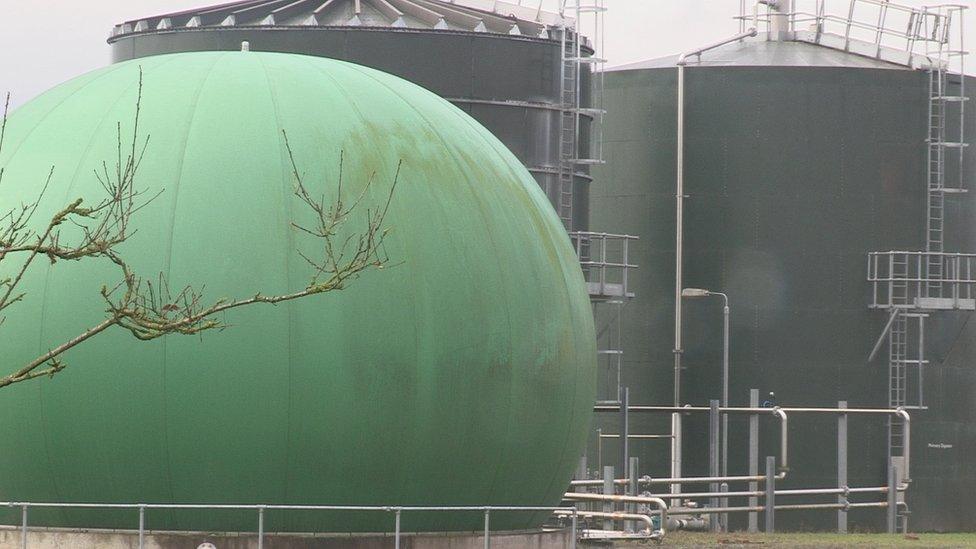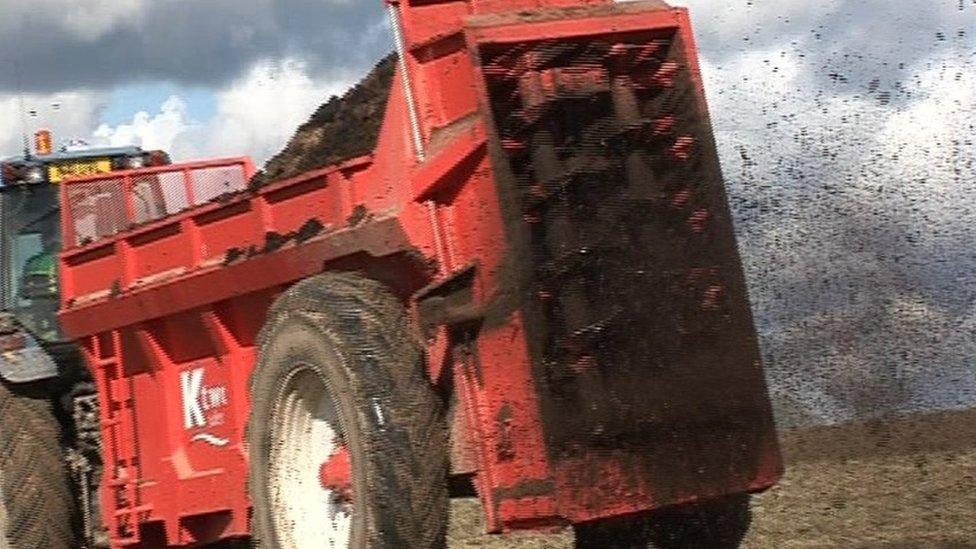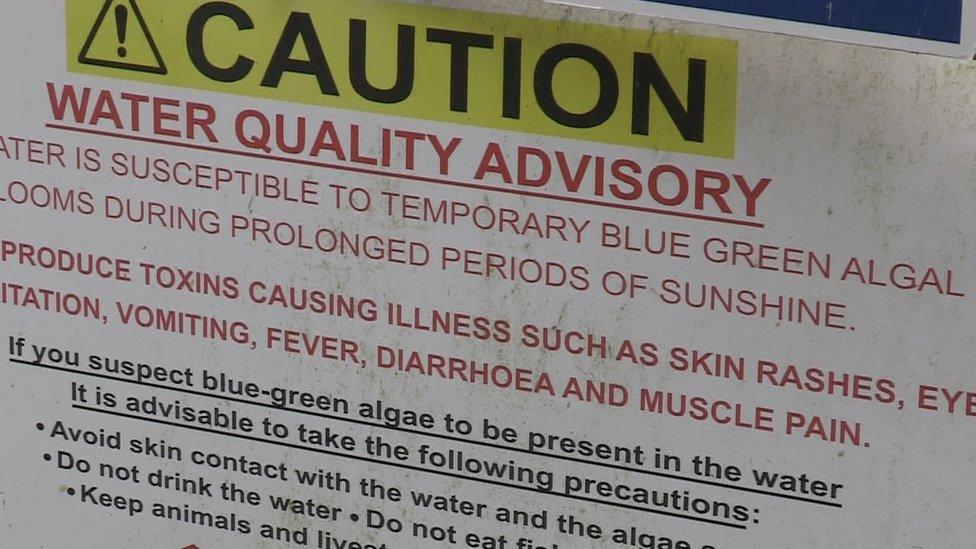Poultry waste problem in Northern Ireland still requires long-term solution
- Published

Commercial anaerobic digestion plants would be expected to deal with at least 20,000 tonnes of poultry litter a year and would be larger in size than the facility above
Poultry meat is big business in Northern Ireland - worth £205m in 2014.
About 14m birds are bred for the table a year.
Processing companies are big employers and the industry sustains thousands of jobs on farms and in factories.
But poultry has a problem - how to deal with the waste it generates.
At the moment, the millions of birds reared in Northern Ireland create 260,000 tonnes of poultry litter a year.
The litter is a mix of bedding and droppings and if the industry expands, it could generate 400,000 tonnes of waste annually.
For the moment, much of the waste is spread as fertiliser on fields.
But it is rich in nitrogen and phosphorous which can run off into rivers and lakes and damage them - a process known as eutrophication.
European Union regulations are in place to stop that.
To show it is making progress, Northern Ireland needs a long term solution to deal with its poultry waste.
The Northern Ireland Executive has set up a £15-20m fund to try to find an answer and soon it will be spending some of that cash.

At present, much of the waste is spread as fertiliser on fields
It will be lent to companies who will use it to part fund at least two "demonstrator" plants to test new technology.
They would be expected to deal with at least 20,000 tonnes of waste a year.
Six applications have been assessed by the business development agency, Invest NI.
Stormont's Agriculture Minister Michelle O'Neill said at Christmas that schemes based on anaerobic digestion (AD) were furthest advanced in the selection process.
Anaerobic digestion uses micro-organisms to break down organic matter inside a sealed and heated system.
That gives off a biogas which can be burned to produce heat and power, but there is a problem with using AD technology for this.
Loan agreement
Unless expensive stripping processes are included, the same amount of nitrogen and phosphorous going into the system in the poultry litter, will be present in the byproduct, or digestate, when it comes out.
If you want to spread the digestate on land, you will face the same potential problems with eutrophication.

Although it is spread on fields it is rich in nitrogen and phosphorous which can run off into rivers and lakes and damage them
That is why, in 2014, a report commissioned by the agriculture minister said anaerobic digestion was not the answer to the poultry litter problem.
However, it seems officials are determined to overcome this issue with the AD projects being assessed for funding.
The Department of Agriculture has said that, in those projects, the digestate would either be exported for field spreading or further refined to separate out the nutrients in pellet form.
The first loan agreement with Invest NI was expected to be signed by the end of last year.
The minister said that once the finance was in place, she expected the first plants could be operational by late 2016 or early 2017.